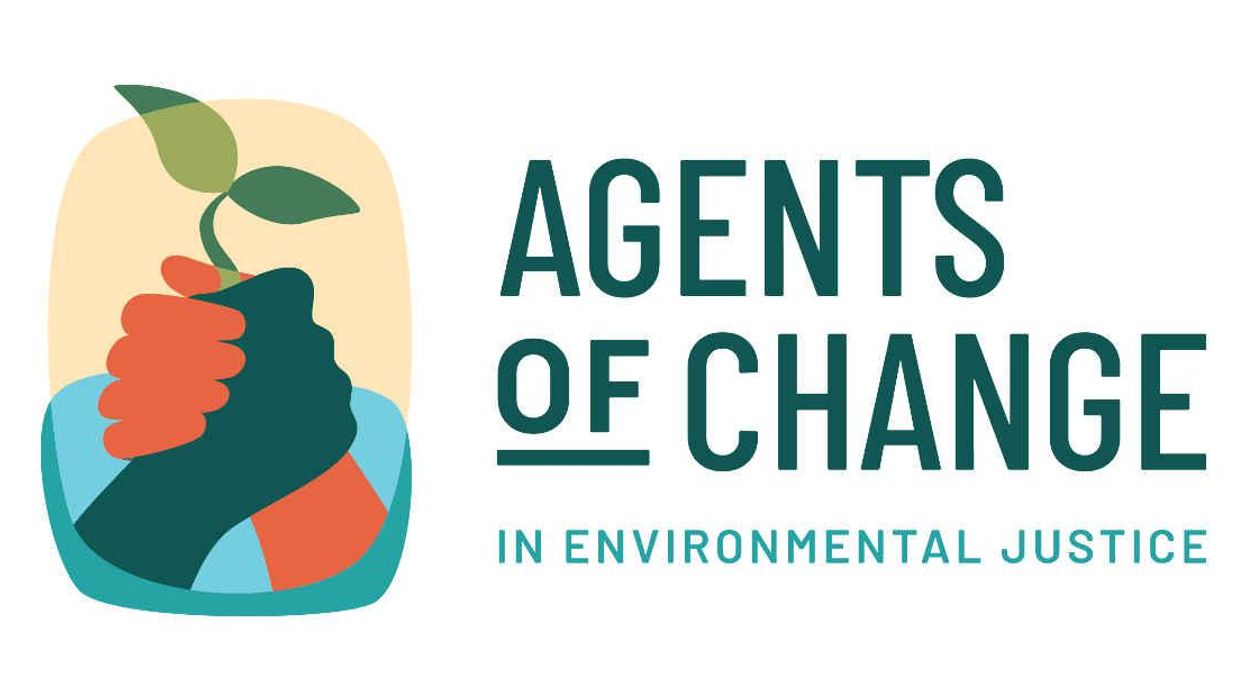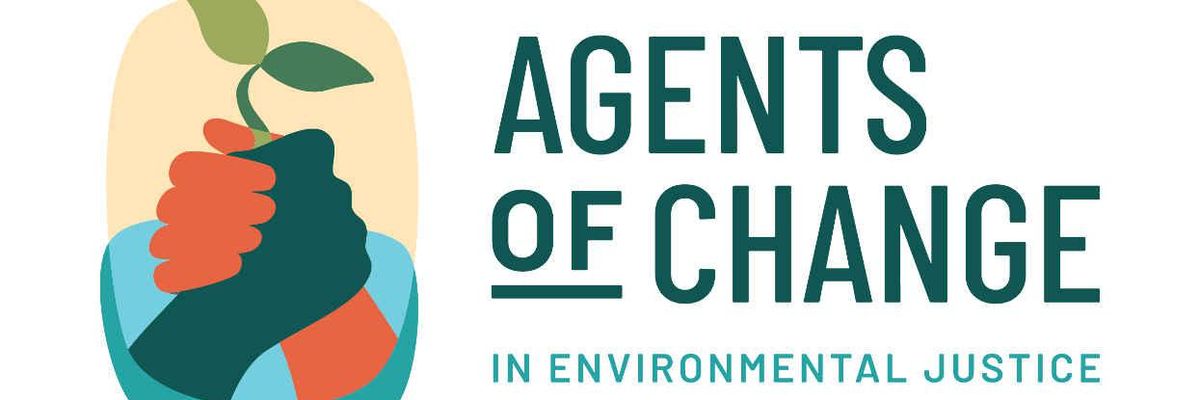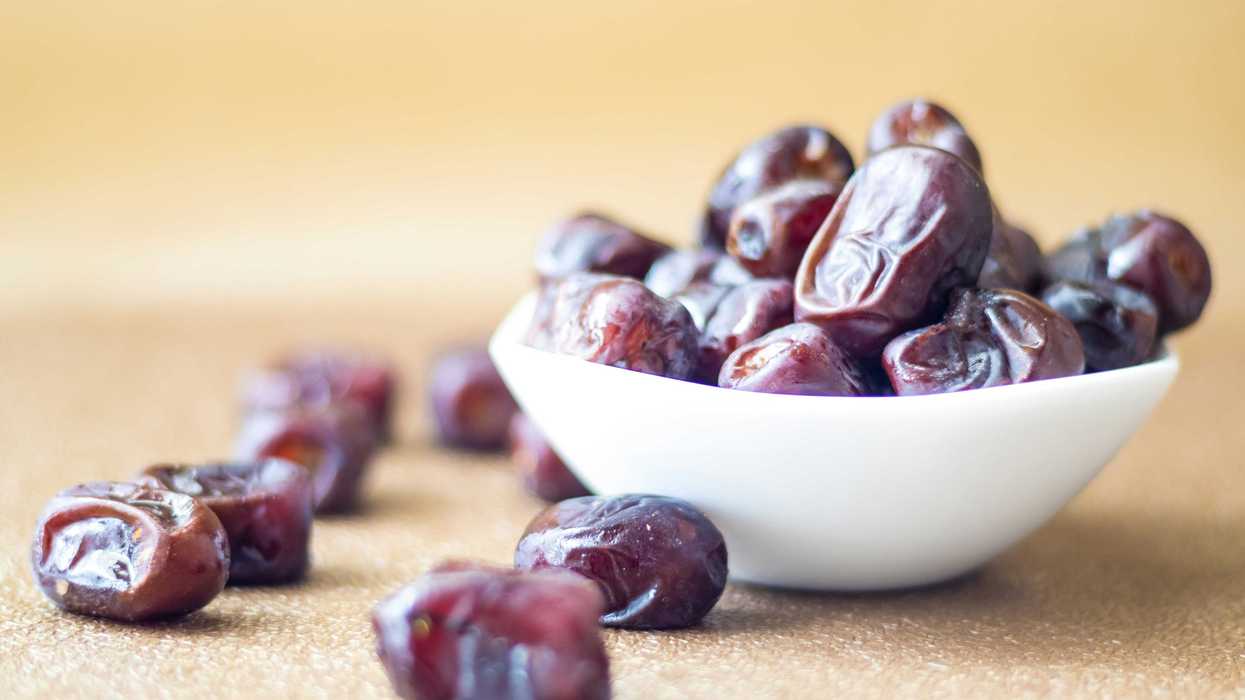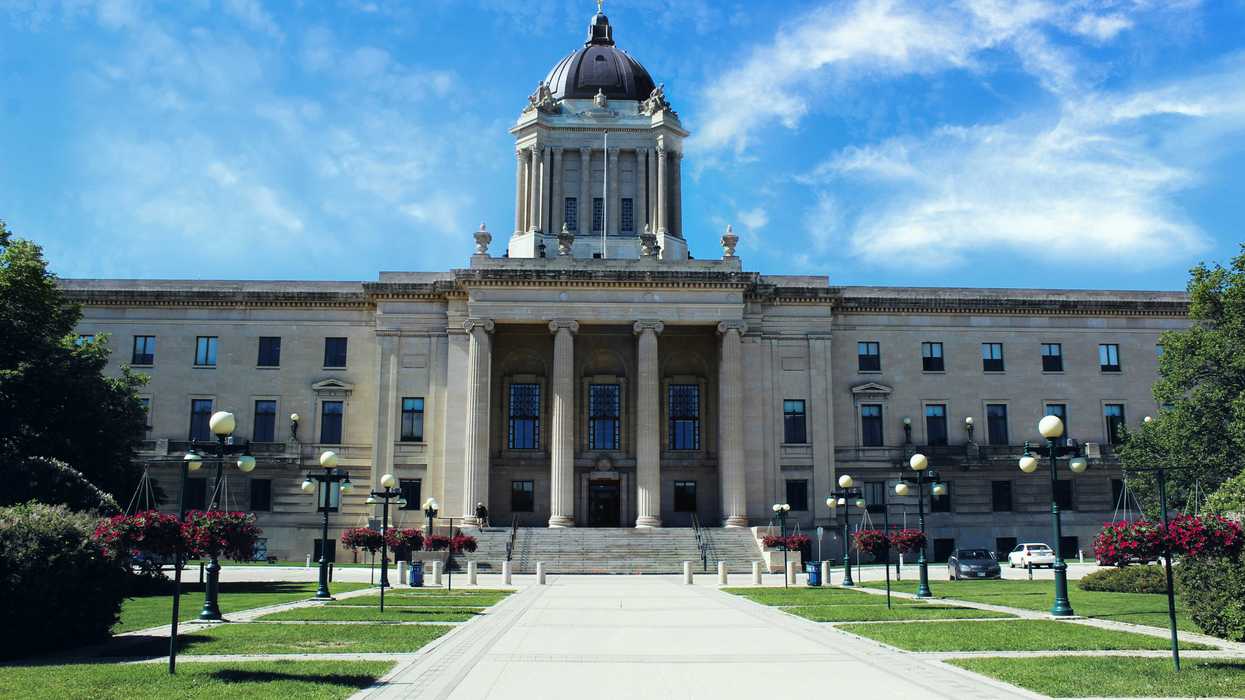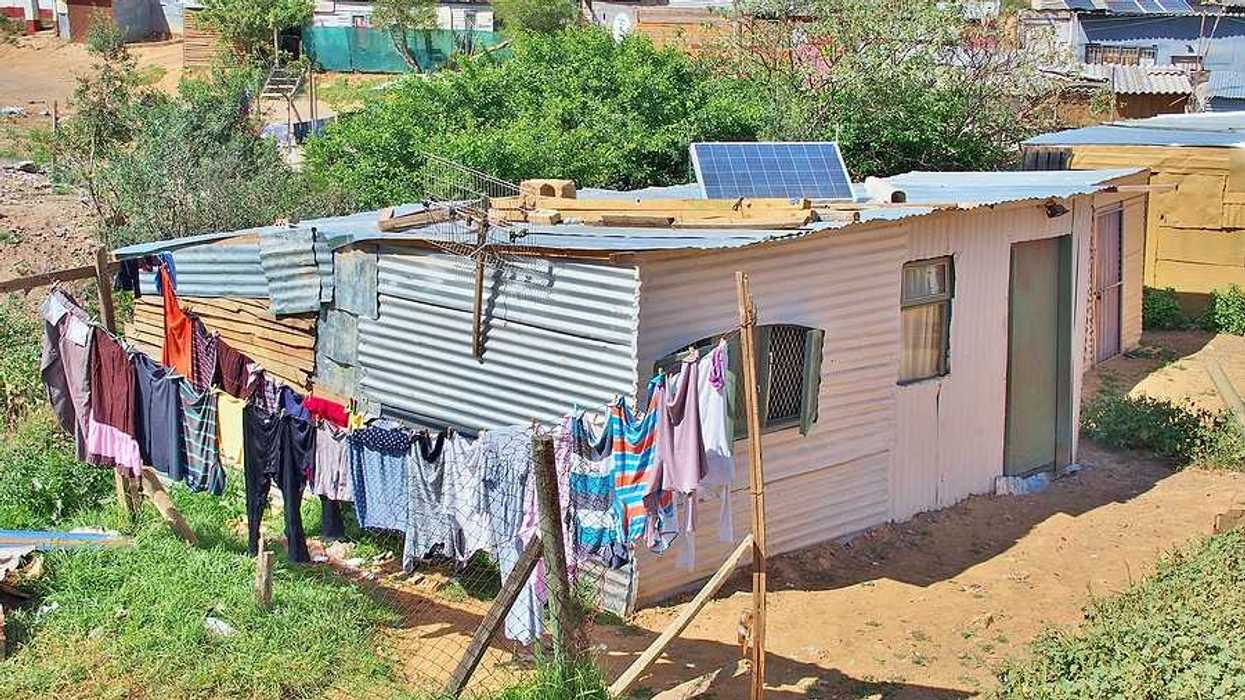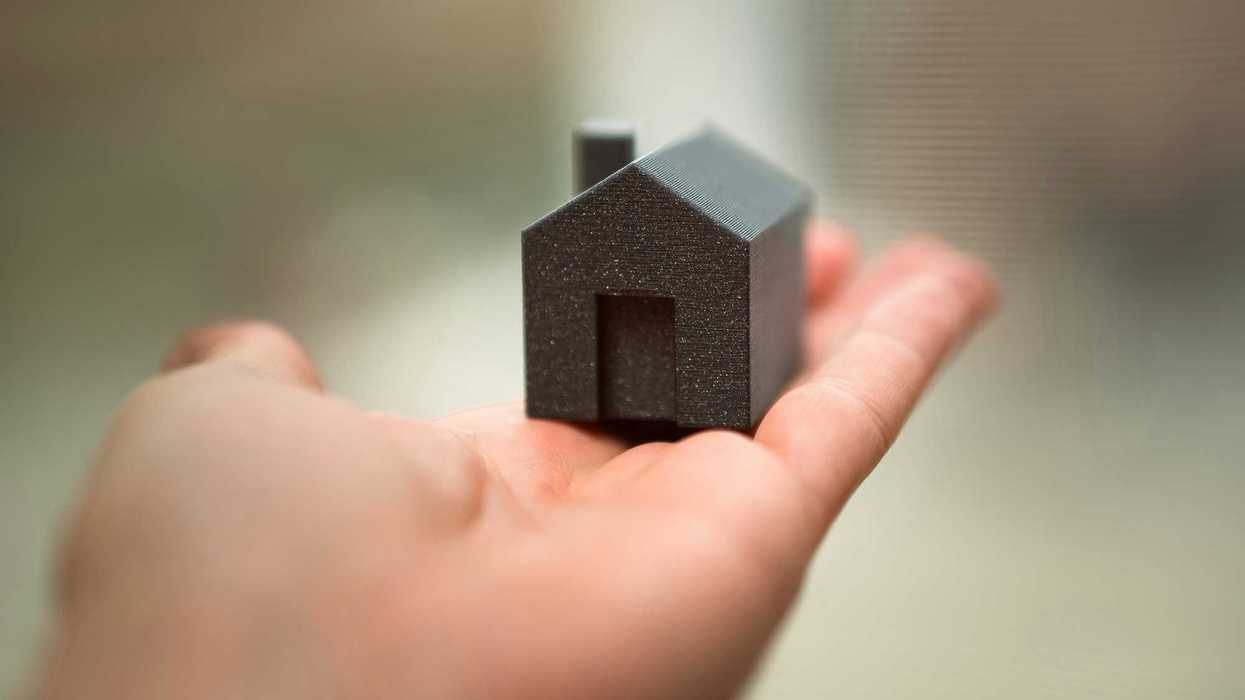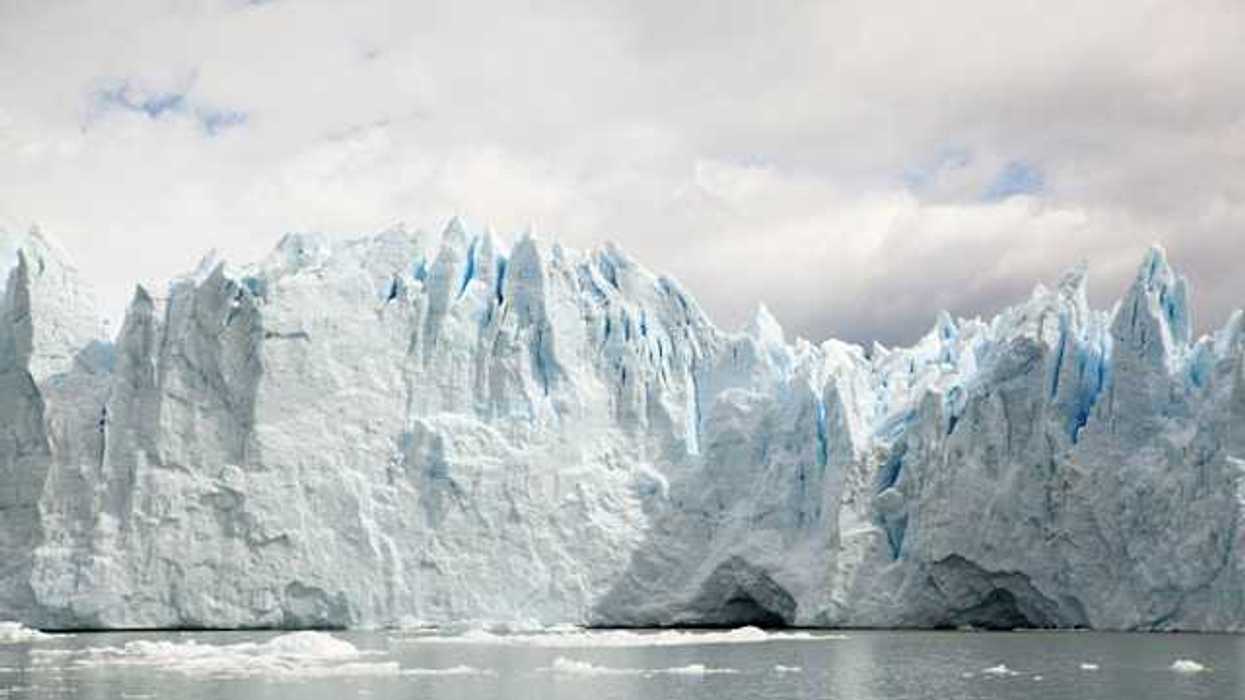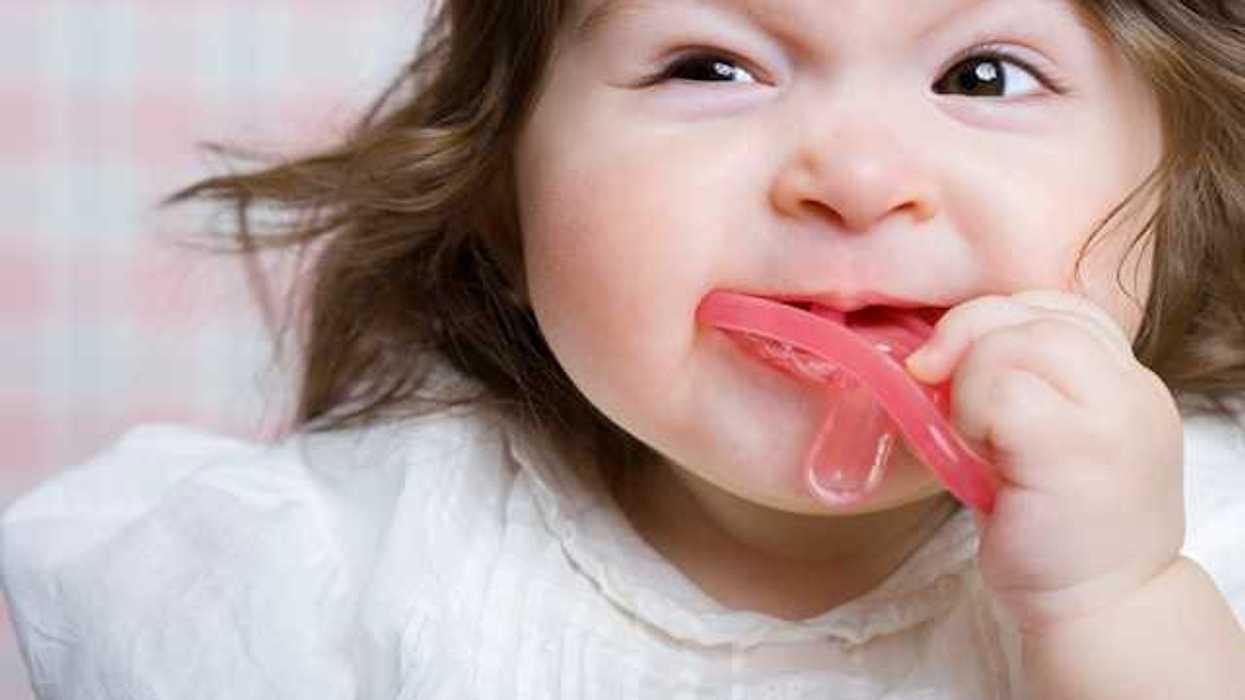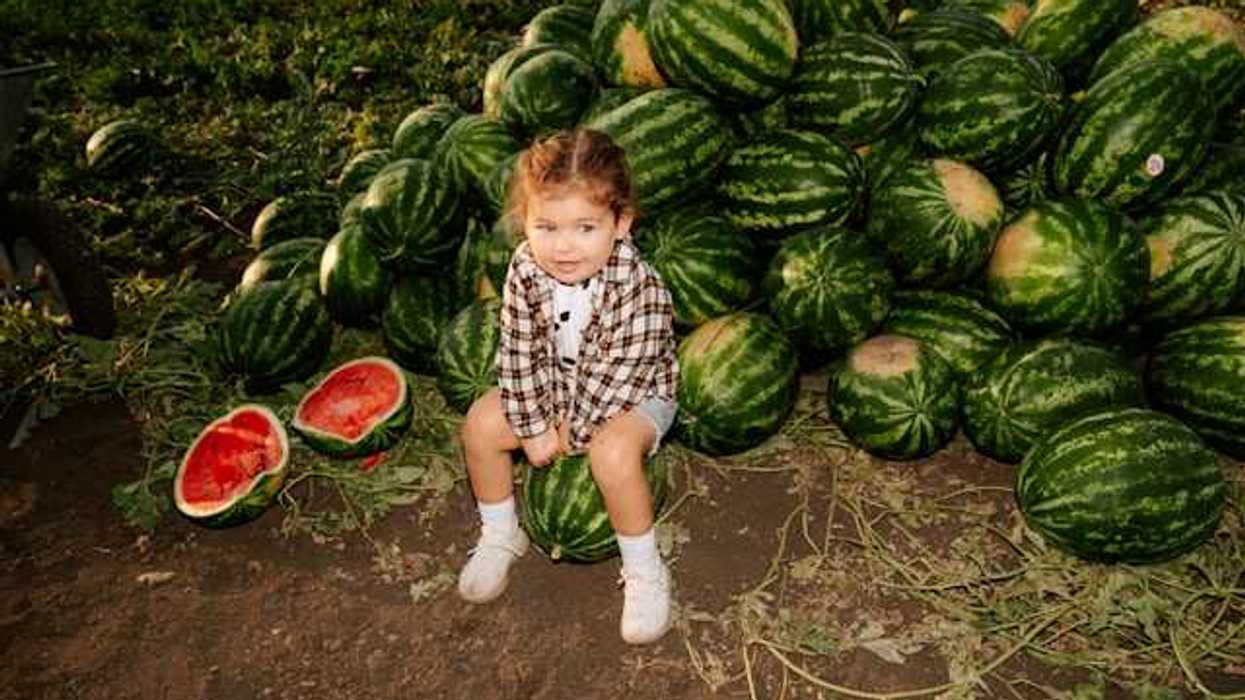Brianna VanNoy joins the Agents of Change in Environmental Justice podcast to discuss why representation in research matters, and how clinical trial research can incorporate public health and justice ideas.
VanNoy works in clinical research at Nationwide Children's Hospital in Columbus, Ohio. She was also part of our first group of fellows and wrote about prioritizing inclusion in environmental health. She talks about the experience of writing and having her ideas thrust into public conversation, and bringing an environmental justice focus to her future medical school training.
The Agents of Change in Environmental Justice podcast is a biweekly podcast featuring the stories and big ideas from past and present fellows. You can see all of the past episodes here.
Listen below to our discussion with VanNoy, and subscribe to the podcast at iTunes, Spotify, or Stitcher.
Transcript
Brian Bienkowski
Brianna, how are you?
Brianna VanNoy
I'm great. How are you?
Brian Bienkowski
Doing well doing well. So Brianna was part of our first group of fellows. And now she's at the Nationwide Children's Hospital and outside of Columbus. Is that right?
Brianna VanNoy
Yes, yeah.
Brian Bienkowski
Great. So a good place to start is maybe what is it or what was it about the field of public health that first drew you to it?
Brianna VanNoy
Well, I always say I kind of stumbled into public health. As a biology pre med student in college, I kind of had my blinders on, of course, just going through trying to check as many boxes as I could. And I had the chance to go on a medical volunteering trip abroad. And that was my first time really starting to understand some of the maybe upstream and external factors that influence a person's health. So we were working in a rural community at the time. So there were issues with sanitation and water quality, lack of access to consistent care. And I realized that, you know, there are a lot of these external factors that I needed to be more aware of, if I wanted to be, you know, a physician one day and so I came back to college and took a intro to public health course. And that kind of just opened my eyes and my mind to so many different things. And it also helps me reflect on a lot of the issues that I had seen growing up, but didn't necessarily have the vocabulary or like fancy words for like suffocation or food deserts or, you know, different communities being marginalized by you know, inequities. I had seen these things growing up in Dayton, Ohio, I seen how black and brown communities had, you know, less access to healthful foods in certain communities, or there were differences in health outcomes, but I didn't have the terminology for it at the time. And so public health really gave me a framework to not only look forward but also reflect on my own life and upbringing and how a lot of those issues were prominent in the communities from which I came and the communities that I wanted to serve. And so I kind of just took my interest in it and ran with it in terms of schooling and getting involved with different projects research. And so when I was in college, I had the chance to be involved with environmental justice research. And so we were working with a community here in Columbus, who was essentially advocating for installation of air monitors in their neighborhood because they were concerned about pollution from a nearby power plant. And so they teamed up with one of the researchers at my institution who was a toxicologist and
We did soil sampling in the community. And we did a lot of like advocacy related work with them talking with Columbus public health, and the Ohio EPA and really trying to help advance their efforts for environmental justice in their neighborhood. And so through that work, I was working with our researcher who was a black researcher. So it was my first time seeing a black man in this role, and, you know, academic research and environmental health. And me being the only black student in my department, he really took me under his wing and showed me my capability in the field, and I know, really sent me on my path and academic research, for sure. And so it was kind of an easy transition to grad school. And I guess the rest is history.
Brian Bienkowski
When you talk about having the, the black researcher, you mentioned, what did that, what did that mean to you, finally, seeing somebody who looked like you in that kind of position that maybe hadn't seen before?
Brianna VanNoy
You know, it was just, I would say, very empowering to see someone that looks like you and these spaces, um, you know, unfortunately, the reality is that you kind of get used to being the only one or very few people in science related spaces, and particularly in environmental health spaces, which is so peculiar, when you think about a lot of grassroots efforts. And a lot of environmental movements have been led by, you know, communities of color, yet, when you get into higher academic spaces, you see less and less of that. And so, for me, you know, I was just really happy that I had sort of this example or model of a person that I look up to, and that also gave me an opportunity. Because a lot of times, it's not that students don't have the potential or the drive, but they need someone to open the door for them. And he was someone that gave me a chance, I hadn't had any, you know, formal research experience before. And by him allowing me to learn from him and the postdocs and the PhD students in his lab, that thing gave me the experience. I mean, it was going forward in grad school, when I applied for different opportunities, I could say that I had a search experience. So it's really him opening up doors for me showing me that this is something that I could achieve.
And you know, not cutting corners on you know, he's so push me as hard as anyone else. And if not more sometimes, and, but it was always good Dr. Hood, shout him out, to have his support and still do to this day, I shared my EHN article with him, and he was super proud and excited about it. So um, you know, I hope that I can do the same thing for black women, black students, students of color in the future, just showing them that this isn't as achievable for you. And if you have the interest, no matter what it is, you can do it. And, you know, there are people that have gone before you, that can help you.
Brian Bienkowski
That's awesome. And I want to talk a little bit about your work now. But prior to moving there, you were at George Washington University when you did the fellowship for with EHN. And your essay was on representation and research and the opening line of your essay really hit me it was you started off from black woman to black woman, is it a good idea for me to participate in these studies. And I'm thinking, I'm thinking about it now, too, in the context of COVID. And all that. And this came out, obviously, much prior to there being a vaccine. But some of these same issues are coming up right now. And it struck me as someone who's covered science for nearly a decade as a reporter that it's so often thought that science is kind of a cold logical field. And it doesn't have too much bias. However, when we're talking about who's included in these health studies, and also who's conducting them, as you just mentioned, there's kind of this built in bias. And one way is that it's overwhelmingly white. And I wonder if you can talk about the study work done on uterine fibroids and how your team was was intentional about its engagement with the black female participants?
Brianna VanNoy
Yeah, so I worked with Dr. Ami Zota, who is co founder of Agents of Change. And she had began this research program at GW trying to understand more about uterine fibroids from an environmental and kind of social epigenetic context. And so I was fortunate to work for her as research coordinator for this study. And so my job really was about recruiting patients and then being with them along the entire study, enrollment period from start to finish. And so I recruited patients at GW and you know, I did interviews with patients asking them about their experiences with fibroids, which are, for those who are unfamiliar, they're non cancerous tumors that grow in and around the uterus of reproductive age women and black women experienced fibroids at higher rates than non black women and they have you know, higher morbidity oftentimes and have to undergo hysterectomy at higher rates and other women and so it's a it's an issue for all reproductive age women, but black women definitely carry a larger burden of the condition. And so, you know, as a black woman, woman, myself, as someone who has women in my family who have fibroids, it was a topic that was near and dear to me. And so I was really excited to be a part of a study like this, especially since it kind of bridged the worlds of clinical medicine, which I was interested in, and then also environmental health sciences.
But you know, we had the chance to work with so many women during my time there, I recruited over 100 patients. And so it was interviewing them asking them about a haircare products that they use household cleaning products. So if you get an idea about maybe some chemical environmental exposures, ask them about stress and daily lives experiences of discrimination. Ask them about their experiences in healthcare settings, interacting with their clinicians. Ask them about, you know, just what was their what's their experience been like with fibroids. And then of course, all the appointments, our patients were getting hysterectomy, so I was there with them. On the day of their surgeries, collecting their fibroid tissue samples, once it was removed from them, I'm doing lab stuff. So I was involved to lots of stuff for the study. But my favorite part, were just all the in between moments, I guess I didn't make it to the dataset, you know, the in between conversations, walking with the patient from the clinic, gram to the lab, or you know, the five minute conversation before they roll the patient back to the operating room for surgery. That's really where the relationships were built, you know, having those conversations about, you know, what are your holiday plans? Or, you know, what are your kids up to? Or have you tried this new haircare product, I just transitioned to natural hair. So those are things that you know, will never be necessarily captured in a data set. But I think that really start to go relationship. And when you talk about clinical research.
It's really about trust, I think, and I've seen a lot of things circulating lately with, of course, the color of vaccines coming out about how the onus is on, you know, the medical profession and our researchers and on academic scientists to gain trust, it's not for, you know, the general public to trust us just inherently but for us to gain that trust, and to demonstrate that we are trustworthy. And even before maybe those were sort of buzzwords and things that people are talking about now I really tried to implement that within the study and how we interacted with our patients and, and trying to build trust and demonstrate that we were trustworthy. And that I tried to do that in a lot of ways. I think one just being transparent about the whole process, trying to answer as many questions as I could, you know, patients were very interested in the work that we were doing, even though our work wasn't directly benefiting them, because they were already at the point of surgery.
It still wanted to know, what were next steps. What were some of the questions that we were asking. And so it just means being able to have those answers ready. And, you know, if I didn't have an answer, in my mind, I could go back and say, Hey, Dr. Soto, like someone asked about this, you know, what? Sure, until we did, and I would have lots of conversations kind of off the record just about different things that patients will come up with. And so I think that, you know, that was a really big piece of it, trying to make all of our protocols as flexible as possible to accommodate patient schedules. So like, I was doing interviews, like, on Friday night at 8pm, or, you know, Sunday afternoon, I got the call from the participant asking about, you know, if it was a good idea for her to participate on a Sunday afternoon, you know, so trying to be as flexible as possible, with patience to accommodate their schedule and accommodate their lives was also really important. I think that sometimes protocols can be so rigid, that they miss people, because you know, people's lives don't happen on our perfectly discrete study calendars. And so it's important to build in flexibility there. So those are just some things and you know, it doesn't happen overnight. It was constantly and a work in progress. Well, we were constantly going back and thinking how can we make this better? How can we be more flexible in this area?
You know, how can we be more transparent in this area? And what ways you know, maybe if a patient, you know, was maybe annoyed about one thing that happened, how can we make sure this doesn't happen again, how can we remedy for this patient now so that the next few study visits are better? So I think it's just really being mindful that our participants mean more than just the data points that we collect. They really are, you know, people with real stories and a whole life and they're giving us a glimpse into their lives and in some cases are sharing information and sharing themselves in a way that maybe even people closest to them haven't even had the privilege to see. And so, I took that really personally, I think I always had tried to. Um, so yeah, I think we were successful.
Brian Bienkowski
Great, so many good lessons there, too. For right now, as we as we try to vaccinate people and talk to people, and, and hopefully we can get there, I do want to take one quick step back before we jump forward, beyond GW, and that is you talked a little bit about Dr. Hood, and kind of growing up in public health, your public health interests growing, what is a defining moment that shaped your identity,
Brianna VanNoy
My whole identity, there's so many things, you know, I, I really can take pieces from so many different parts of my life, I think, I can take pieces from childhood, I can take pieces from college, grad school, and even now, um, one thing is that I've always been very confident in myself, like, as a black woman, and I think I attribute that to just my family and them, you know, instilling in us pride and you know, being black people, and like, there's nothing wrong inherently wrong with us. And even if you're the only one in the room, like, embrace being the only one in the room, and if there are others in the room, you know, come together with them. But I will say I think, in graduate school, to at the end graduate school, I finished my thesis and I had received, you know, a few awards and whatnot. And, you know, I think at that time, I was finally like, Whoa, like, I actually have a lot of potential in this field. Like before, I think I kind of just, you know, I was doing my work and doing it to the best of my ability, but I wasn't necessarily sure if I was on the right path or what have you. And when I sort of saw what I was able to accomplish in that short period of time, with my thesis and different presentations, and just sort of the combination of all my work. During my master's program, I was kind of like, Whoa, okay, like, you're really doing this Breanna and you know, your voice matters and what you contribute matters. And, you know, you can kind of forge a path for yourself if you want to. And so I would say grad school was kind of like, when I felt the most Sure, and my interest in environmental health and the space that I was occupying, and knew that it was okay for me to be here and occupying this space, and, you know, things will work out in the end. So I would say, you know, that will be one thing that comes to mind is like, the big moment for me, where I felt like, I could fully be myself in this field and pursue my interests.
Brian Bienkowski
Sure. Yeah, I could really, really relate with the college feels like you're still figuring things out a little bit, whereas grad school feels, it's that bridge between professional and college and you start thinking, I know, when I went into journalism, that field was in the, in the in the pits, and I thought, well, I probably won't get a job, but we'll see what happens. And then then you slowly start thinking, well, maybe I can do this.
Brianna VanNoy
Yeah.
Brian Bienkowski
You're now doing working in clinical research at the Nationwide Children's Hospital, as we mentioned, tell me a little bit about it.
Brianna VanNoy
Sure. So it's a big transition from what I was doing at GW. So my work in GW was really like,
all in working with patients. And now I'm kind of on the back end of clinical research, really doing more of the startup and administrative work for research, which is a big transition for me, but it's been a great learning experience. And so I essentially help with all of the startup activities for clinical trials. I mentioned my children's hospital. So we work with industry partners, pharmaceutical companies, other sponsors, and so we're really just doing all of what it takes to initiate, um, you know, trials for cancer patients, gene therapy, you name it, we're probably working on it. We have hundreds of studies coming through all the time. And so it's a completely different world for me, because primarily in public health, we're working on observational studies where we're not really, you know, giving a study drug or trying to see how one thing affects the other. But we're mostly just trying to collect information and understand, you know, the world around us and how that might be impacting a certain issue. But here I'm really learning the nitty gritty of clinical trials, which is interesting now that we're in this world of COVID and vaccines. And so I've learned so much more about what goes into this entire process and so ... this is certainly I think, a transition for me in my life right now. But one more, I'm super excited to be back in my home state and closer to family and friends. And kind of reset a little bit from the work, which I think is also important for people who are, are doing a lot of intensive research. And it can be, you know, draining emotionally and physically. And I think being mindful of that is also important because you can only do your best work when you are taking care of yourself. And so I had to learn that lesson. And so for me, this was my way of still being able to contribute to research and contribute to meaningful work, but also take care of myself in a way that works best for me, which was being closer to my family right now.
Brian Bienkowski
Excellent. Yeah, that's another lesson from grad school is self care.
Brianna VanNoy
Yeah.
Brian Bienkowski
Crazy to get burnt out and feel like you need to work mornings and nights weekends. And that's not good for anybody, including the people.
Brianna VanNoy
Exactly.
Brian Bienkowski
So your your essay for Aiden's to change was published, like we said, Not too long after COVID hit and it was really widely read and shared. And
it was it was just a fantastic essay, and one of one of the more popular ones we had and wondering for you what that experience was like to kind of suddenly have your voice and your thoughts thrust into the public sphere. And why science communication is something I think that you value.
And anything that would be helpful for others that might be doing such writing?
Brianna VanNoy
Sure. I think it was nerve wracking at first, and just kind of what we were talking about before where you're not necessarily sure where you stand and you're not sure you're not 100% confident and you know that your voice is important or that it matters, that people you know, want to hear what you have to say. And especially for me, especially in being in the agency change cohort, I was so inspired by all of my other colleagues and fellows in my cohort. And I was like, you know, I don't know, what I have to say is more important, or is, you know, as important as what someone else has to say. So I was kind of just, I wasn't sure what to expect, but was very much encouraged by all the great feedback. And so many people reading the article and finding things that resonated with them or set time that they learned lessons I shared it with, you know, I shared like on Facebook, with friends from high school and things like that. And they were like, Oh, I didn't know about, you know, this is EEG experiments, right? I didn't know about, you know, this thing or that thing. And so that was cool for me to know that.
I was educating to some extent, my peers on different issues that they didn't know about. I was really excited and energized to hear that it was being included in core syllabi. And so it was it was great. It was very gratifying to know that what you had to say was important. And I certainly by science communication, because I think that
it without it, we're just talking to each other, we're just talking to other scientists, which is not really going to change anything in and of itself. But really being able to translate your science into something that the general public can understand. That's what pushes policy forward. That's what pushes different changes change and initiatives forward. And so I would say for anyone that is interested in this would just be to like, go for it and do it. I think for me, like I said, I wasn't sure if people would want to really hear what I had to say. And sometimes I felt intimidated because again, I was in a cohort of you know, PhD students and people who, you know, had maybe their own research that they had initiated themselves, where I was a research coordinator who was executing the research of my, my boss. And so I wasn't necessarily sure of myself, but I realized that I had a passion for the work that I was doing. And I brought a lot to the research program, even though it wasn't my own brainchild. And so I still had a lot to say about the issues that I wrote about. And so for anyone, you know, whether you're on the undergraduate level or grad school level, or you know, wherever you are, if you have something to say, if you're passionate about it.
I think that you should try to write it and get it out there on whatever platform that you have. Because, you know, people need to hear your voice and hear what you have to say.
Brian Bienkowski
And you mentioned Facebook, and I love the idea of high school friends or whomever reading it and maybe finally understanding what you do, because that's one of the points of the program is to get to get people writing who have maybe had very complex, dense research they're working on and they try to explain it to their mother or whomever father had dinner. And it just goes right over their head like what what are you doing, and I think that's a really powerful aspect of the program. And speaking of Facebook when it comes to social media,
Was that something you use to, to push the workout to communicate in other ways? How do you feel about it? How do you use it?
Brianna VanNoy
Sure. So you know, I would say, prior to agents of change, I was very much like anti Twitter, but I will only because I had used it on a personal level, like, you know, in college and before, and I just, for those reasons, I didn't love it.
She changed her mind and a lot of ways and, you know, I do definitely see the value of, you know, using it in academic spaces, and there's a lot of information that you can gain from using social media for science communication. I mean, it's a great way to get your work out there. Like you were saying, with Facebook, I literally, when I shared the article, I was like, in case you ever wondered what I do? I do.
Um, and so you know, I think that there's a lot of opportunity to do a lot of good on social media and sharing information. I think, as with anything, it's important to critically be thinking about whose voices are being amplified, even in those spaces, because you know, even on Twitter or in different social media spaces, certain voices may be prioritized over others, certain opinions and values may be prioritized over other people, or sometimes they can just be like high fiving each other were so great session. And so I think that, even with social media, being a great platform, beyond academic journals to share information, it's so important to be sure that you're touching back and reaching back to the communities that you hope to serve, and that you hope your work is relevant to. And so I think that just with anything, it's always about critically evaluating, you know, the reasons for why we're using these different platforms and whose voices are being amplified, and whose are maybe being neglected. And so I'm now a Twitter user, and, you know, try to share articles as I see them, I probably could get a little better at it. But I think that it's a great way to share information. And I've certainly learned a lot just from you know, following certain on thought leaders and people that I look up to, and environmental health, and then also, you know, beyond the field as well.
Brian Bienkowski
Such a good point. I mean, they so they always say in journalism, you have to go where the people are, you know, and that that's where the people are. And I push back and say, but yeah, that's where the other people are to the bots and the and the vitriol and the misinformation So, but I have said this on other podcasts, too. We also after these essays published the first time around on EHN'sTwitter, we saw so many new people that were doing the same kind of work that you all were doing. And then it started this kind of snowball effect, where we got to meet all of these other early career scientists of color who were doing very cool research that that we didn't know about. So it can be a real positive. And I can hear I can hear Dr. Zota, telling me that. It's a good thing.
I am the skeptic.
So hopefully, I'm not breaking any news here to your family that's listening to this. But I just want to congratulate you on getting into medical school.
Brianna VanNoy
Thank you, you're not breaking any news. Everyone knows.
Brian Bienkowski
I'm curious how how you envision, you know, that's obviously that's a that's a long journey that you're that you're about to embark on. But how you envision eventually bridging these worlds of environmental health science and clinical medicine? What's your what's your at that point?
Brianna VanNoy
Sure. So I'm still trying to figure it out. I've been trying to articulate these interests in medical school interviews for the last several months. And, you know, I think that physicians are in a unique position where they have a chance to not only be on the front lines of clinical care, but can also really use their voices in sort of position in society to advocate for a lot of these social and environmental issues that impact their patients. I also think that like, right now, all of our health issues are so complex, like it's not just you know, about biology anymore. Like you have to really bring in and have interdisciplinary collaboration with experts from all different fields. And so I think that, like, medicine, in general really has to, like get on board with that idea that like, it's not just about us, it's really about all these experts, as well as the communities who are their own experts about the issues that impact them. It's all about all of us coming together to address this head on. And so I think that I, I was able to start to see good examples of that with the research that Dr. Zota was doing at GW because, you know, as an epidemiologist and public health expert, she was working with sociologists and basic scientists and our
You know, gynecologic surgeons to kind of address this issue of fibroids all from their unique perspectives and expertise. And so I hope that my career can really do that I love to be involved with projects like that, that are bringing together experts from different fields to really amplify these issues. And I just think that clinicians in general have to be informed about the upstream factors that impact their patients, you know, like, the clinical interactions are such a small subset of what, you know, impacts and influences the patient's health. And so I think that it's really important that clinicians realize that and, and act accordingly. And so I hope that I can do that. And so there's some great models that I have for me, in my life, who are physicians who are also environmental health experts. And so I hope to sort of emulate a lot of the work that they've done.
And, you know, hopefully do even more, so it'll be a learning process. And it's been fun to kind of reflect the last few months during interviews on just how my experiences in environmental health have really informed my passion for, you know, underserved communities and for advancing health equity and justice for black and brown communities. And, you know, I hope that I can always, you know, be reflecting on and, and leveraging my environmental health background and clinical role.
Brian Bienkowski
It seems to me just going into the field, thinking about these things is a step in the right direction, whereas so many, and I don't want to over generalize, but I just don't know that it's front of mind for a lot of doctors and nurses.
Brianna VanNoy
Yeah, I don't think so either. I mean, that's the feedback that I've gotten from a lot of the physicians and admissions committee members that I've interviewed with is that it they've, they have been, you know, relatively unique, which is interesting, because I'm like, this isn't unique, like, you know, but again, I've been around people that are thinking about these issues and care about them. And so, it's been interesting to talk with, you know, folks outside of our field, they're like, Oh, this is a very unique perspective. And I'm like, is it?
I'm glad you think so.
So, you know, I think that, um, there's a lot of work to still be done, to really be sure that, you know, these environmental health issues that impact so many different, you know, medical issues that we talked about, from, you know, reproductive health to, you know, I don't know, just everything, there's so many things that environmental health is at the forefront of, and I think that there's a lot of work to be done to really integrate the two areas in a more intentional way. So I hope to do that. And I have to rely on my public health colleagues and their expertise in a lot of ways to and not just try to, you know, I don't want to leave the public health aspect of it out, because to me, they go hand in hand. And so you know, I'll be calling up Dr. Ans and other agents of change fellows, hopefully in the future.
Brian Bienkowski
Awesome. And Brianna, my last question today is a little bit different. What is the last book you read? for fun?
Brianna VanNoy
Oh, for fun. Hmm.
Wow, this is a good question. Well, I'm currently reading medical apartheid, which, that's fine.
Um, I also finished The New Jim Crow. So I like reading historical sort of, you know, interesting books like that.
I need to get better reading, you know, maybe more lighthearted books for fun, but I hate especially in this year have just been tried to be even more informed about how our history is impacting us, you know, now, and what lessons we can learn from the past and we look forward in the future, but um, do you have any book recommendations?
Brian Bienkowski
Oh, you are the first one to turn it around.
So I have this lovely habit of avoiding reading about environment environmental health for the most part, so I'll read some wildlife books. I'm I'm really into wildlife. So I also embarrassingly read comic books and graphic novels. So nice. Let's see. And I'm a cyclist. So the last two books I read were about bicycling, which I can't find
Oh, boy, put me on the spot didn't expect.
The last one I finished was The the best graphic novel of all time, in my opinion, which is the watchman okay.
Okay, so if you ever want to read go down a rabbit hole of graphic novels, the Watchman is a brilliant novel.
Brianna VanNoy
So it's one of my goals for 2021 to read more books, I think, you know, I'm, I want to challenge myself with that. Because you know, for so long, you can just read academic journals and like, you know, not necessarily read for fun. And so, I want to start doing so. Yes.
Brian Bienkowski
Well, Brianna, I don't people can't see this over audio, but you are always smiling. And it's always lovely to talk. And I've really appreciated getting to know you, and thanks for taking the time today.
Brianna VanNoy
Thanks so much, Brian. I was super delighted when I got your email the other day and I you know, anytime I always will make time for this great program, because I think that people have a lot to say, and you all are giving us the platform to say it. So I appreciate you and Dr. Zota and EHN and everyone else involved. So thank you.

